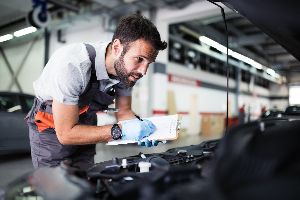Do's & Don'ts of Dealing With an Overheating Engine

When you're on the road and notice your temperature gauge moving upward, the engine might be overheating. Knowing what to do helps you stay safe, and avoid vehicle damage and the need for towing. Here are do's and don'ts to make the best of your situation.
Do:
Turn up the heater.
You need to divert heat from the engine to cool it. One way to do that is by rolling the windows down and turning the heater to the highest temperature possible. Expect the engine to take at least 30 minutes to cool enough to touch the components.
Shut off your air conditioner.

If you are using the AC, turn it off. Your vehicle's air conditioner runs on a compressor, which adds to the work burden on your engine. When the air conditioner stops running, the engine works less and its temperature should drop.
Don't:
Keep driving.
If you continue driving with an overheating engine, you may be doing serious damage to the vehicle. The engine block can crack, and if it does, you will stop in the road and need towing. At the first sign of trouble, find a safe place to pull over and let the engine cool. Do not touch the engine immediately because you will suffer burns. For example, hot components, such as the radiator cap and hoses, can cause significant injuries.
Open the hood.
After pulling over, wait for the engine to cool before popping the hood, unless you can do it from inside the vehicle. Opening the hood immediately can release smoke or steam. If you are near it, you risk injuries or burns. Watch and wait for the engine temperature gauge reading to drop before approaching the side or front of the vehicle when the hood is open.
If your vehicle engine overheats and you need assistance, seek help from Discount Towing and Recovery in Mountain Home, AR. This automotive team offers various services, including rapid roadside assistance. For more information, visit the website. Call (870) 425-1775 for professional car and truck towing.
About the Business
(12 reviews)
Have a question? Ask the experts!
Send your question

